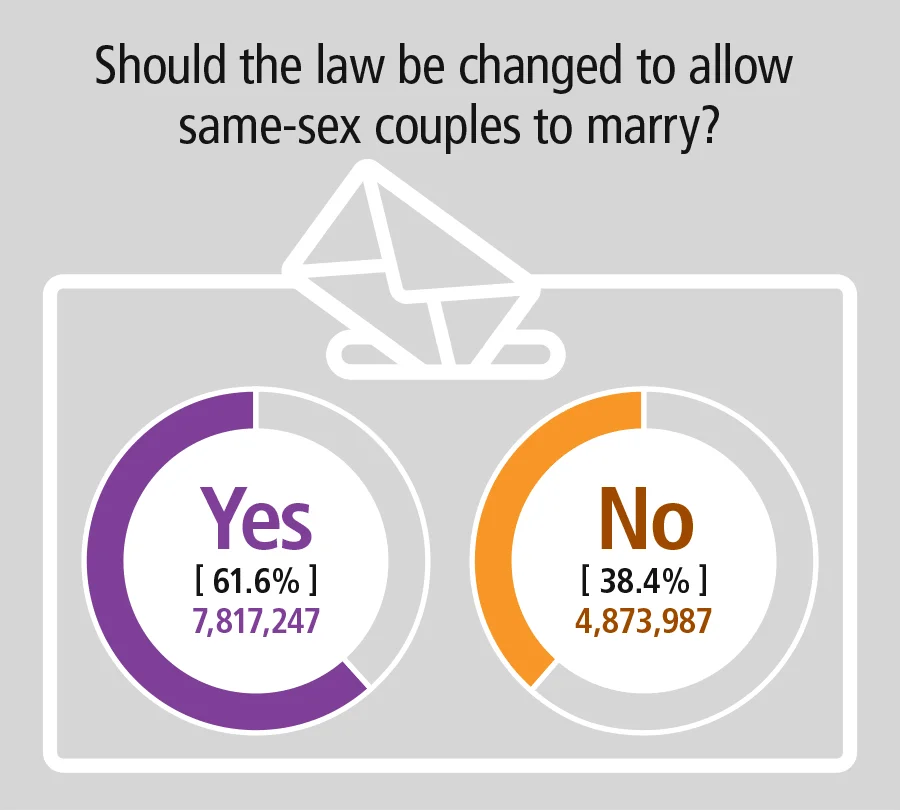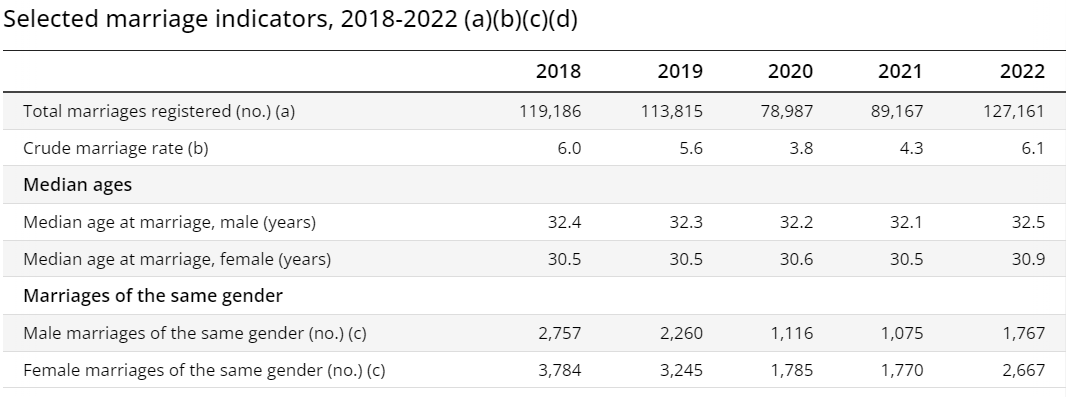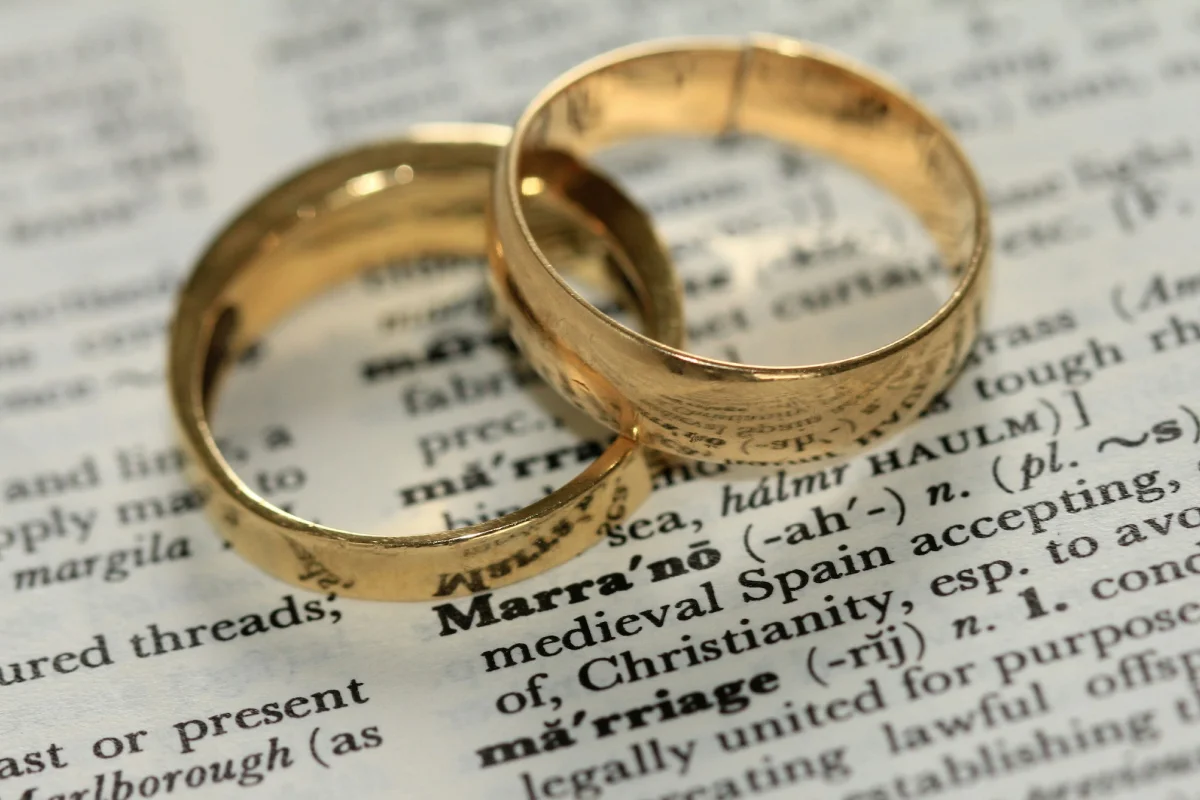What Does ‘Marriage’ Mean, Legally Speaking, in Australia?

Evolution of Marriage Laws in Australia
Marriage is a fundamental social institution that has undergone significant changes in Australia over the years. From its traditional roots as a union between a man and a woman to its current inclusive definition, the legal landscape of marriage has evolved to reflect changing societal norms and values.
In this comprehensive guide, we’ll delve into the legal definition of marriage in Australia, exploring its history, current status and the rights and responsibilities it bestows upon couples.
Key legislative changes in Australia
Australia’s marriage laws have undergone a remarkable transformation to keep pace with societal shifts and growing calls for marriage equality here Let’s take a closer look at the key legislative milestones that have shaped the definition of marriage in Australia:
The Marriage Act 1961 codified the common law definition of marriage as a voluntary union between a man and a woman, excluding all other types of relationships. This traditional definition of marriage registration remained unchanged for several decades.
In 2004, amidst growing international recognition of same-sex unions, the Australian parliament amended the Marriage Act to explicitly define marriage as a union between a man and a woman. This move was seen as a response to some overseas jurisdictions legalising same-sex marriage.
However, the tide began to turn in 2017 when the Australian government conducted a nationwide postal survey to gauge public opinion on same-sex marriage. With an overwhelming majority of Australians voting in favour, the Marriage Act was amended once again to redefine marriage as “the union of 2 people to the exclusion of all others.” This landmark change legalised same-sex marriage in Australia, marking a significant step towards equality.

Legal Definition of Marriage in Australia in 2024
As we stand in 2024, the legal definition of marriage in Australia has been firmly established in the amended Marriage Act 1961. Section 5 of the Act provides a clear and inclusive legal definition of marriage australia
“means the union of 2 people to the exclusion of all others, voluntarily entered into for life.”
This concise yet powerful definition encapsulates the key elements of a legally recognised marriage in Australia. Let’s break it down:
- Gender Neutrality: The definition makes no reference to gender, emphasising that marriage is a union between any two people, regardless of their sex or gender identity.
- Voluntary Commitment: Marriage is a freely chosen commitment, entered into with the full consent of both parties. Coercion or duress can invalidate a marriage.
- Exclusivity: The phrase “to the exclusion of all others” underscores the monogamous nature of marriage in Australia. It requires a commitment to a single partner.
- Lifelong Intent: While not a legally enforceable requirement, the definition suggests that marriage is intended to be a lifelong union, reflecting the seriousness and permanence of the commitment.
Beyond this core definition, of civil marriage the Marriage Act stipulates several other requirements:
- Neither party can be already legally married, ensuring monogamy.
- The parties must not be in a prohibited relationship, such as close blood relatives.
- Both parties must be over the age of 18, with limited exceptions for 16-17 year-olds with court approval and parental consent.

Differences in State and Territory Marriage Laws
While the Marriage Act is a federal law that applies across Australia, there are some minor differences between states and territories in how marriages are solemnised and registered.
In Western Australia, the couple must lodge a Notice of Intended Marriage with the Registry of Births, Deaths and Marriages at least one month before the wedding. Other states have different time frames, consent requirements and processes.
Queensland allows certain religious ministers to solemnise marriages without being registered as civil celebrants, which is not permitted in other states.
Some states have different residency requirements for getting married. For instance, South Australia requires marriage certificates for at least one party to reside in the state for at least one month prior to the marriage.
It’s important for couples to check the specific requirements in their state or territory to ensure their marriage certificate is legally valid.
Rights and Responsibilities Under Australian Marriage Law
Marriage is not just a symbolic union; it comes with a host of legal rights and responsibilities that significantly impact various aspects of a couple’s life together. When two people say “I do,” they are not only committing to each other emotionally but also legally intertwining their lives.
Married couples in Australia enjoy several legal rights and protections, including:
- Joint ownership of property and assets acquired during the marriage, known as “marital property.”
- The ability to file joint tax returns and access potential tax benefits as a married couple.
- Automatic inheritance rights if a spouse dies without a valid will, ensuring the surviving partner is provided for.
- Eligibility for spousal benefits, such as access to a partner’s superannuation and insurance policies.
- The right to apply for spousal visas and potentially expedite citizenship processes for a foreign partner.
- Recognition as next of kin for important medical decisions if a spouse is incapacitated.
However, marriage also comes with legal obligations that couples must be aware of:
- The duty to financially support and maintain each other during the marriage and even after separation in some cases.
- Shared parental responsibility for any children of the marriage, including the obligation to provide care, welfare and financial support.
Marriage vs de facto partnerships:
While the 2017 amendments to the Marriage Act have made marriage inclusive of same-sex couples, it’s important to note that marriage remains legally distinct from de facto partnerships in Australia.
De facto relationships, which can include both same-sex and opposite-sex couples, are defined as committed, intimate relationships where the couple lives together on a genuine domestic basis.
De facto couples generally enjoy many of the same legal rights and protections as married couples under Australian law, but there are some notable differences:
- De facto relationships are automatically recognised by law after the couple has lived together for a certain period (which varies by state), rather than requiring a formal ceremony or registration.
- Proving the existence of a de facto relationship can be more challenging than a registered marriage when it comes to accessing certain rights and benefits, such as partner visas or inheritance claims.
It’s crucial for couples to understand these legal distinctions and consider which relationship status best aligns with their personal and legal needs.

Implications of Marriage: Family Law and Beyond
The decision to marry is not one to be taken lightly, as it has far-reaching implications that extend beyond the romantic notion of love and commitment. One of the most significant areas where marriage has a profound impact is in the realm of family law, particularly when a relationship breaks down.
When a married couple decides to separate or divorce, they must navigate a complex legal landscape to untangle their lives and resolve critical issues such as:
Child custody
In the event of divorce, the Family Court makes decisions about parenting arrangements based on the best interests of the child. The Court presumes it is best for a child to have a meaningful relationship with both parents, but this can be displaced if there are reasonable grounds like family violence.
Spousal maintenance
A higher earning spouse may be required to financially support their partner after separation if they cannot adequately support themselves. The Court considers factors like each spouse’s income and earning capacity.
Property settlements usually require the court to divide the couples’ assets in a way that is just and equitable, considering their respective financial and non-financial contributions.
Property settlements
When a marriage ends, the couple must divide their assets and liabilities in a way that is just and equitable. This includes not only tangible assets like the family home, cars and bank accounts but also intangible assets such as superannuation and business interests. The court will consider each spouse’s financial and non-financial contributions to the marriage, as well as their future needs and earning capacities, when determining a fair property settlement.
Impact of Marriage on Wills and Estate Planning
Getting married automatically revokes any existing Will in most Australian states and territories. This means that if a person marries and dies without making a new Will, their estate will be distributed according to intestacy laws rather than their previous Will.
It’s critical for newlyweds to review and update their Wills as soon as possible to ensure their spouse is provided for and their assets are distributed according to their current wishes. They should also update the beneficiary nominations on their superannuation and insurance policies.

Challenges and Considerations
While marriage can be a beautiful and fulfilling chapter in a couple’s life journey, it’s not without its challenges and legal considerations. From protecting individual assets to navigating the complexities of international unions, couples must be well-informed and proactive in addressing potential issues.
Binding Financial Agreements
Couples can enter binding financial agreements before, during or after a marriage to specify how property would be divided in the event of separation. These may more popularly be referred to as prenuptial agreements. To be legally valid they must follow strict requirements like each party receiving independent legal advice.
Voiding a marriage (divorce proceedings)
To legally end a marriage, a couple must apply for a divorce order. They must be separated for 12 months and there must be no reasonable prospect of reconciliation. If there are children under 18, the Court must be satisfied that proper arrangements have been made for their care. The actual divorce becomes final one month and one day after the order is made.
A marriage can also be void if it did not meet the legal requirements, such as if one party was already married or if they are in a prohibited relationship.
Legal Consequences of Marriage Fraud
Marriage fraud, also known as a sham marriage, is when a couple marries solely for the purpose of obtaining visas, residency rights, or financial benefits. This is illegal under Australian law.
If the Department of Home Affairs suspects a marriage is not genuine, they may investigate the couple. If marriage fraud is proven, the penalties can include:
– Cancellation of visas and deportation from Australia
– A ban on applying for future spouse or partner visas
– Up to 10 years imprisonment and substantial fines
– Potential criminal charges for related offences like forgery or false declarations
It’s crucial that couples understand the severe consequences of engaging in marriage fraud. Marriages must be entered into genuinely, not as a way to gain legal or financial advantages.
Navigating the Legal Labyrinth: PDL Are Your Guides to Australian Marriage Law
Marriage is a beautiful union that brings two hearts together, but it also comes with a complex web of legal rights, responsibilities and implications. As we’ve explored in this comprehensive guide, the legal definition of marriage in Australia has evolved over time to become more inclusive, now encompassing the legal union of any two consenting adults, regardless of gender.
However, the legal landscape of marriage extends far beyond the moment of saying “I do.” From property ownership and the spousal rights and maintenance to Wills and estate planning, marriage intertwines couples’ lives in countless ways. It’s essential for anyone considering marriage to have a clear understanding of these legal implications and to take proactive steps to protect their rights and interests.
Couples must also be aware of the legal distinctions between marriage and de facto relationships, as well as the potential consequences of marriage fraud. Seeking the guidance of experienced family law professionals can help navigate these complex issues and ensure that couples are making informed decisions about their futures.
FAQs
Are Overseas Marriages Legally recognised under Australian Law?
In most cases, yes. An overseas marriage will be recognised in Australia if it was valid under the law of the country where it was entered into. There are some exceptions like where the marriage would not be legal under Australian law (e.g. underage or void marriages, polygamous marriages).
Can foreigners legally marry in Australia?
Yes, two foreigners can marry in Australia as long as they meet all the legal requirements like being over 18 and not already married. They will need to complete a Notice of Intended Marriage form at least one month before the wedding.
Is marriage in the Australian Constitution?
Marriage is mentioned briefly in Australia’s Constitution, but only from a division of powers perspective between the Commonwealth and the states. The Constitution gives the federal parliament the power to make laws about marriage.
Are prenuptial agreements legally binding in Australia?
Yes, prenuptial agreements, known as binding financial agreements, are legally enforceable in Australia if they comply with the legal requirements and are properly drafted and executed. Both parties must have received independent legal on whether the proposed agreement is to a party’s “advantage or disadvantage”. .
What legal advice should couples consider before getting married in Australia?
Couples should consider seeing a family lawyer to discuss the legal implications of marriage, including understanding their rights and obligations regarding property, spousal maintenance and children. They may want to consider whether a prenuptial agreement is appropriate.
What changes to legal documents are required after getting married?
Couples will generally need to update next of kin details on important documents like Wills, superannuation accounts, insurance policies and bank accounts. If either party changes their name, they will need to update their name on identity documents like their passport and driver’s licence.
What happens to property owned prior to marriage?
In the event of divorce, all property of the marriage is considered for division, regardless of when it was acquired. However, the Court does consider the contributions of each party, so if one spouse owned significant assets prior to the marriage, this may be taken into account in determining a fair property settlement.
Can you get married if you’re still legally married to someone else overseas?
No, it’s illegal to be married to more than one person at a time in Australia, even if the other marriage took place overseas. A person must be legally divorced from their previous spouse before they can remarry.